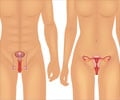Long-term testosterone therapy in men with hypogonadism may be an effective approach to achieve sustained improvements in cardiometabolic function.
Highlights
- The use of testosterone in men who have testosterone deficiency (hypogonadism), remains a controversy.
- Testosterone plays a key role in the development of male reproductive tissues, promoting secondary sexual characteristics such as increased muscle and bone mass and growth of body hair.
- Testosterone therapy (TTh) in men with low levels of testosterone reduced their risk of heart disease.
TOP INSIGHT
Long-term testosterone therapy in men with hypogonadism appears to be an effective approach to achieve sustained improvements in cardiometabolic function and reduces the risk of cardiovascular events.
In the absence of large, prospective, placebo-controlled clinical trials of longer duration, substantial evidence regarding the safety and risk of testosterone therapy (TTh) with regard to cardiovascular outcomes can only be gleaned from observational studies. To date, there are limited studies comparing the effects of long-term TTh in hypogonadal men who were treated or remained untreated with T.
Researchers at Boston University Schools of Medicine (BUSM) and Public Health (BUSPH), along with researchers in Germany, established a registry to assess long-term effectiveness and safety of T in men.
For this study, they sought to compare its effects on a host of parameters (obesity, cholesterol levels, diabetes, liver function) considered to contribute to cardiovascular disease.
The researchers followed a group of men for eight years who had been on TTh and compared them with another group of men who remained untreated for the same time period. They found there were only two deaths in the TTh group and neither was related to CV events.
According to the researchers, long-term TTh in men with hypogonadism appears to be an effective approach to achieve sustained improvements in cardiometabolic function and reduces the risk of CV events.
Reference
- Abdulmaged M. Traish at al., Testosterone therapy provides protection against cardiovascular disease in men with low testosterone, Journal of Cardiovascular Pharmacology and Therapeutics (2017).
Source-Medindia
 MEDINDIA
MEDINDIA





 Email
Email










